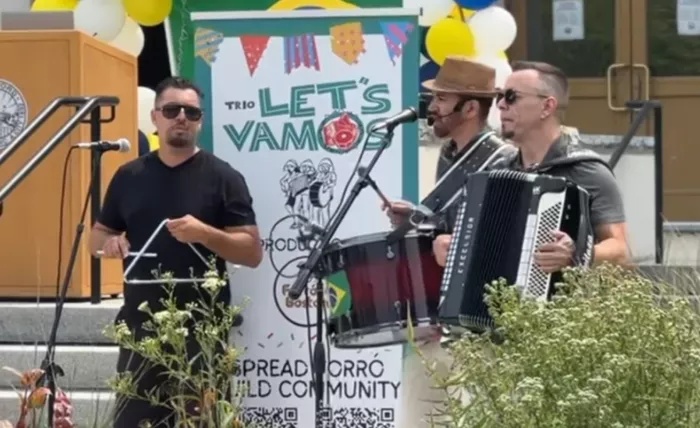Massachusetts’ Brazilian Community: Growing Numbers, Persistent Challenges.
Massachusetts hosts the second-largest Brazilian population in the U.S., yet this community remains largely under-recognized, according to a new report. Since 2010, Brazilians have also been the largest immigrant group in the state.
Commissioned by The Boston Foundation’s Latino Equity Fund, the report from Instituto Diáspora Brasil aims to highlight the “migratory trajectory” of Brazilians and their contributions to Massachusetts, both culturally and economically. The report spotlights achievements, such as a high rate of entrepreneurship, and addresses challenges, including English language acquisition and professional licensing.
“This report provides visibility for a community often overlooked in discussions about Latinos,” said Javier Juarez, executive director of the Latino Equity Fund. Juarez emphasized the importance of including the Portuguese-speaking Brazilian community in Latino advocacy efforts.
Juarez and co-author Álvaro de Castro e Lima estimate that beyond the 140,000 documented Brazilian residents, the actual population could be double, accounting for undocumented individuals and others uncounted in the census.
“I believe there was a significant undercount in the 2020 census,” said de Castro e Lima, noting this can limit public funding for education and community services.
Economic Contributions and Migration Trends
The first significant wave of Brazilian immigrants arrived in Massachusetts during World War II, driven by the state’s demand for mica from Brazil’s Minas Gerais region for radio equipment. Since then, immigration has continued in waves, most recently spurred by Brazil’s economic instability, urban violence, and political unrest since 2015. Many Brazilians now reside in areas like Everett, Framingham, and Greater Boston.
As of 2022, 84% of Brazilian immigrants in Massachusetts were working-age adults (18-64), underscoring the role of employment in Brazilian migration. Brazilian entrepreneurs now own around 24,500 growing businesses in industries such as real estate, construction, law, accounting, food services, and domestic work.
“Many arrive here with a strong desire to succeed, relying on community networks for support,” said report co-author Mariana Dutra of Instituto Diáspora Brasil.
In 2022, Brazilian immigrant workers contributed approximately $8 billion to the state’s gross product and paid $219.8 million in income taxes.
Barriers to Integration
The report identifies immigration documentation, language proficiency, and healthcare access as significant barriers for the Brazilian population in Massachusetts.
Nearly 30% of Brazilian immigrants had attained U.S. citizenship by 2022, while 43% of all Brazilians in Massachusetts, including both naturalized citizens and those born in the U.S., have citizenship. More than half of non-citizen Brazilians arrived between 2010 and 2020.
“Pathways to citizenship are limited for undocumented Brazilians, and the naturalization process is often lengthy and costly, even for lawful residents,” the report states.
Language remains a major hurdle, with over a third of Brazilians in the state struggling to speak English. This language gap impacts their employment, awareness of workers’ rights, and access to essential services.
“We need more support for English learning,” said de Castro e Lima, stressing its importance for job prospects and civic participation.
Additionally, many Brazilians work in precarious jobs without understanding their rights, making them vulnerable to exploitation.
“Some bad actors, including those within the community, take advantage of this situation,” said Dutra.
Advocacy and Community Support
The report encourages various measures to support Brazilian immigrants, such as advocating for immigrant contributions to Social Security benefits, expanding labor protections, and creating a forum for Brazilian community organizations to collaborate and increase their impact.
“Education about labor rights is crucial,” said Dutra, noting it as one of the most pressing needs of the community.
One area of progress is political representation. The Brazilian community has elected three state representatives, a city councilwoman in Everett, and a school board member in Everett, reflecting its growing influence.
Efforts continue to enhance resources and support services for the Brazilian population. “Framingham provides an excellent example,” said Juarez, citing programs like English for Speakers of Other Languages (ESOL) and computer literacy, which specifically target the Brazilian community through partnerships with organizations like the Brazilian Workers Center.
Related topics:
- Trump labels the U.S. a ‘garbage can’ during immigration speech in Arizona.
- John Legend Calls Trump Racist for His Comments on Immigrants
- Canada Reduces Immigrant Intake Due to Public Concerns About Immigration


